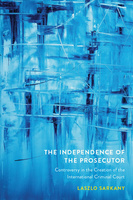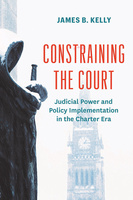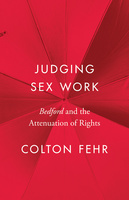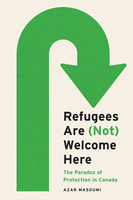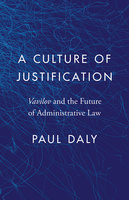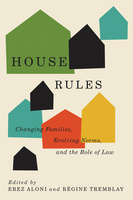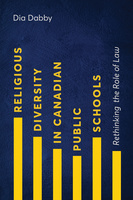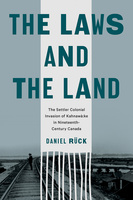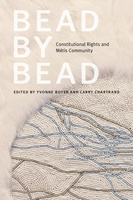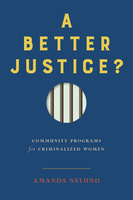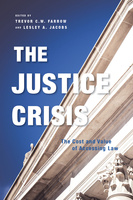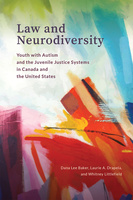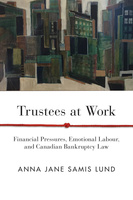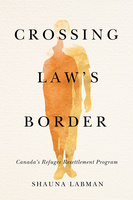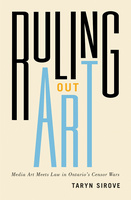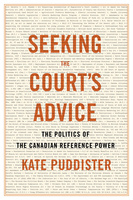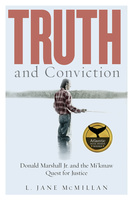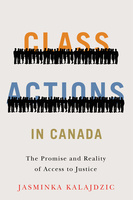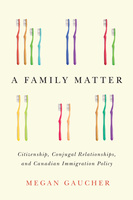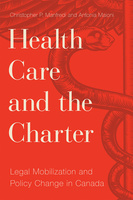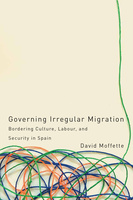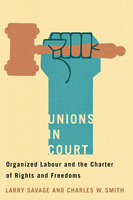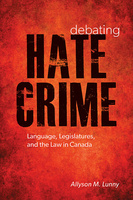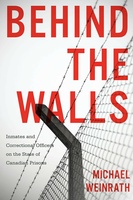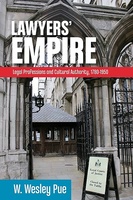The Independence of the Prosecutor
Controversy in the Creation of the International Criminal Court
This compelling investigation shows how an independent prosecutor, who can initiate investigations without states’ assent, became a key part of the International Criminal Court.
Constraining the Court
Judicial Power and Policy Implementation in the Charter Era
Constraining the Court considers what happens when a statute involving a significant public policy issue is declared unconstitutional – and government disagrees.
Suing for Silence
Sexual Violence and Defamation Law
Suing for Silence exposes the phenomenon of lawsuits whose purpose is to silence those who disclose sexual violence, revealing the gendered underpinnings of Canadian defamation law and its chilling effect on public discourse including formal reports of sexual violence.
Judging Sex Work
Bedford and the Attenuation of Rights
Judging Sex Work argues that a decision widely considered to be a victory for social justice weakened sex workers’ rights far more than it strengthened them.
Refugees Are (Not) Welcome Here
The Paradox of Protection in Canada
Refugees Are (Not) Welcome Here details the paradox of the simultaneous expansion and restriction of access to refugee rights in Canada.
A Culture of Justification
Vavilov and the Future of Administrative Law
A Culture of Justification examines how a groundbreaking case involving undercover spies and a man’s fight for citizenship helped the Supreme Court of Canada forge a consensus on the future of one of the most important areas in Canadian law.
Family Law in Action
Divorce and Inequality in Quebec and France
Family Law in Action examines the inequalities produced by divorce and separation in France and Quebec.
Reckoning with Racism
Police, Judges, and the RDS Case
Reckoning with Racism is a riveting account of Canada’s most momentous race case, which drew in the country’s first Black female judge and spotlighted racist police practices.
House Rules
Changing Families, Evolving Norms, and the Role of the Law
House Rules takes a hard look at the law and norms governing family life, compelling readers to rethink entrenched inequalities in familial relationships and proposing ways to approach legislative solutions.
Religious Diversity in Canadian Public Schools
Rethinking the Role of Law
This comprehensive analysis of the legally complex relationship between religion and public schools will compel readers to reconsider the role of law in education.
The Laws and the Land
The Settler Colonial Invasion of Kahnawà:ke in Nineteenth-Century Canada
The Laws and the Land, an original and impassioned account of the history of the relationship between Canada and Kahnawà:ke, reveals the clash of settler and Indigenous legal traditions and the imposition of settler colonial law on Indigenous peoples and land.
Bead by Bead
Constitutional Rights and Métis Community
Bead by Bead lays bare the failure of judicial doctrine and government policy to address Métis rights, and offers constructive insights on ways to advance reconciliation.
A Better Justice?
Community Programs for Criminalized Women
Do community programs offer an effective alternative to imprisonment for women within the criminal justice system? A Better Justice? sets out the case.
The Justice Crisis
The Cost and Value of Accessing Law
Based on innovative recent empirical research, The Justice Crisis assesses what is and isn’t working in efforts to improve access to civil and family justice in Canada.
Law and Neurodiversity
Youth with Autism and the Juvenile Justice Systems in Canada and the United States
Through a comparison of juvenile justice systems in Canada and the United States, Law and Neurodiversity examines gaps of accommodation and consideration for youth with autism.
Trustees at Work
Financial Pressures, Emotional Labour, and Canadian Bankruptcy Law
Trustees at Work explores what is means to be considered a deserving debtor in under contemporary Canadian personal bankruptcy law.
Privacy in Peril
Hunter v Southam and the Drift from Reasonable Search Protections
This book, the second in the Landmark Cases in Canadian Law series, argues that in subsequent, post-Hunter v Southam decisions, the Supreme Court of Canada has strayed from the principles set out in that case, which were intended to protect the privacy of citizens from encroaching state power.
Crossing Law’s Border
Canada’s Refugee Resettlement Program
Crossing Law’s Border offers a comprehensive account of Canada’s refugee resettlement program, from the Indochinese crisis of the 1970s to the current era of controversy and flux in refugee and asylum policy.
Ruling Out Art
Media Art Meets Law in Ontario’s Censor Wars
This fascinating account of Ontario’s 1980s’ censor wars shows that when art intersects with law, artists have the power to transform the law, and the law, in turn, can influence the concept of art.
Seeking the Court’s Advice
The Politics of the Canadian Reference Power
The first comprehensive analysis of the Canadian reference power, Seeking the Court’s Advice examines how policy makers use the courts strategically to achieve political ends.
Truth and Conviction
Donald Marshall Jr. and the Mi’kmaw Quest for Justice
A passionate account of how one man’s fight against racism and injustice transformed the criminal justice system and galvanized the Mi’kmaw Nation’s struggle for self-determination, forever changing the landscape of Indigenous rights in Canada and around the world.
Class Actions in Canada
The Promise and Reality of Access to Justice
The first major empirical and critical study of class actions in Canada, this book provides a detailed account of how they operate and whether they are achieving their goals.
A Family Matter
Citizenship, Conjugal Relationships, and Canadian Immigration Policy
A Family Matter investigates the implications for immigrants and refugees of the Canadian government’s definition of what constitutes “family.”
Health Care and the Charter
Legal Mobilization and Policy Change in Canada
An engaging study of the clash between two iconic Canadian policy instruments – universal, single-payer health care and the Canadian Charter of Rights and Freedoms – and the effects on politics and policy.
Governing Irregular Migration
Bordering Culture, Labour, and Security in Spain
This thorough analysis of immigration governance in Spain explores the dynamics of inclusion and exclusion at play at one of Europe’s southern borders.
Contemporary Slavery
Popular Rhetoric and Political Practice
This volume brings together a cast of leading experts to carefully explore how the language of slavery has been invoked to support a series of government interventions, activist projects, legal instruments, and rhetorical and visual performances.
Unions in Court
Organized Labour and the Charter of Rights and Freedoms
This book demonstrates how and why labour’s long-standing distrust of the legal system has given way to a Charter-based legal strategy designed to protect workers’ rights and freedoms.
Debating Hate Crime
Language, Legislatures, and the Law in Canada
Delving into the language used by parliamentarians, senators, and committee witnesses to debate Canada’s hate laws, this book analyzes passionate discourse surrounding victimization, rightful citizenship, social threat, and moral erosion.
Behind the Walls
Inmates and Correctional Officers on the State of Canadian Prisons
Based on candid conversations with inmates and correctional officers in federal and provincial prisons, Behind the Walls offers an up-to-date and balanced account of the corrections landscape in Canada.
Lawyers’ Empire
Legal Professions and Cultural Authority, 1780-1950
In approaching the history of the legal professions through the lens of cultural history, Wes Pue locates the legal profession within England and its empire, supplementing and disrupting established narratives of professionalism as proffered by lawyers and their critics.

